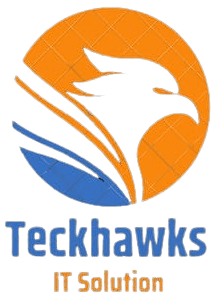10 Tech Tools for Small Businesses
Salesforce Marketing Cloud:
The sales cloud, commonly known as marketing cloud, is a platform offered by salesforce.com designed specifically to help small business owners manage their sales and marketing efforts. As a small business owner yourself, you might have heard about how great it is to work with a customer success team who helps you close more deals, retain customers, and increase revenue.
Slack:
Slack is a messaging app that helps teams communicate and stay organized. It’s perfect for a small team looking to collaborate, share projects, and keep everyone on the same page.
Google Apps:
Google offers a suite of web-based applications that provide everything you need to run a successful business online. Their productivity apps include Gmail, Docs, Sheets, Slides, Drive, Calendar, Keep, Forms, and Analytics.
Amazon Alexa:
Amazon Echo is one of the best ways to get started with smart home automation. You can use Alexa to play music, answer questions, check news, weather forecasts, control compatible smart devices, make calls, set timers, read audiobooks, and much more.
Trello:
Trello is a project management tool for business. It's simple and effective software that enables users to organize tasks, create boards, attach files and manage projects with different levels of detail.
Zoom:
Zoom is video conferencing service designed specifically for meetings and collaboration. Small businesses everywhere love using zoom because they can easily connect face-to-face regardless of location.
Small Business Management Software:
The first step towards managing a business is knowing what steps need to be taken. A simple spreadsheet tool may not work well enough to keep track of all aspects of a company’s operations.
A small business management software provides detailed information about various financial transactions, employee hours worked, inventory levels, sales figures, client details, etc. Many companies even go so far as to provide customized dashboards that allow users to easily view data in real time. These programs make it easier than ever before to keep tabs on important metrics such as monthly revenue, profit margins, and customer satisfaction scores. In addition, they can save hours upon hours of work each week.
Cloud-Based Accounting System:
Accounting systems have been around since the beginning of time. But how many of them were actually cloud based? Not too many. As technology advances, however, accounting software has gone digital in order to streamline processes and improve efficiency. A cloud-based accounting system offers an array of advantages over traditional methods including the use of web-based applications instead of desktop or laptop ones.
Some of these advantages include the ability to access records from any device; the option to download forms for easy filling out; the ease of editing spreadsheets; and the convenience of being able to update accounts without having to physically visit the office.
Online Marketing Platform:
We live in a world where everything happens online. People prefer buying products, taking classes, learning skills, making friends, etc., online rather than off. And many businesses have embraced this trend and now offer their customers a variety of ways to communicate with them. One of the best methods of communication is via email marketing. If you own a business and want to attract potential clients, then using an effective email marketing platform is a great way to do so.
From creating personalized newsletters and e-cards to scheduling automatic emails at certain times to sending targeted messages to specific groups of people, an effective email marketing campaign can help increase brand awareness, generate interest in your product, and encourage visitors to take action.
Social Media Optimization Tool:
Social media platforms such as Facebook, Twitter, LinkedIn, Instagram, YouTube, Snapchat, and others have become a major means of communicating for millions of people worldwide. And if you don’t have a website yet, then chances are that you’re missing out on a lot of potential clients.
With the rise of social media, websites have become less relevant. Today, people search for things on Google and look for recommendations from trusted friends on social media before deciding whether to buy something or hire someone.
If you’d like to stay competitive in today’s market, it’s imperative that you get started with social media optimization. By optimizing your content for popular social channels, you’ll ensure that your company shows up on user feeds, receive more likes, followers, shares, views, clicks, etc.
Marketing Automation Tools:
Marketing automation tools help you automate repetitive marketing tasks and save you valuable time. These applications allow you to segment customers based on behavior, track campaign performance, and analyze data to improve future campaigns. No matter what type of business you run, marketing automation tools can help you boost customer engagement and increase sales.
Customer Analytics Tools:
Customer analytics tools let businesses know exactly who their clients are and how they behave. From analyzing social media traffic to viewing individual purchase histories, this information gives businesses a 360-degree view of their client base, making it easier for them to personalize interactions and deliver the best customer experience possible.
CRM:
CRM (customer relationship management) systems allow you to store customer data, including contact details and transaction records, and organize it into one central location. CRMs can help streamline your sales processes, drive repeat business, and manage your entire customer database.
Cloud Storage Solutions:
Cloud storage solutions offer secure online storage for all of your business documents, images, and videos, eliminating the need to worry about backing up files yourself. By storing everything in the cloud, users can access their content from any device and use different services concurrently. They offer limitless storage space and are accessible via a variety of platforms, including smartphones, tablets, and laptops.


